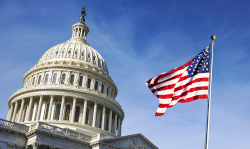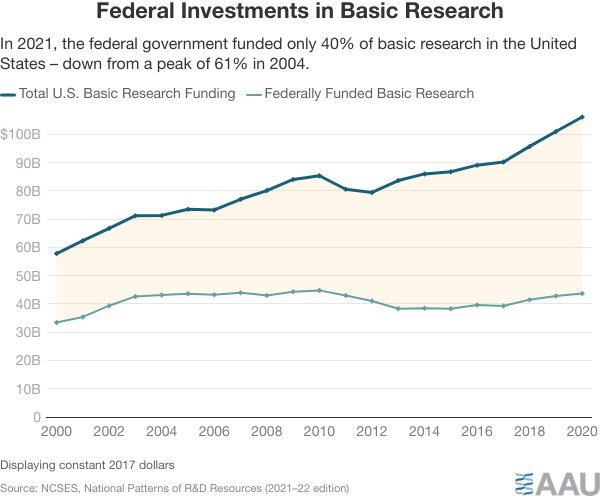 Barbara’s Blog: The Role of Universities in Divided Communities
Barbara’s Blog: The Role of Universities in Divided Communities
Last week, AAU President Barbara R. Snyder published a blog post highlighting the many ways AAU members are fighting against antisemitism and other forms of prejudice in the wake of the October 7 Hamas attacks on Israel. While so much of recent news coverage has focused on flash points on college campuses, she wrote, there is another story worth telling about how “America’s leading research universities have responded to this situation by doing what they do best: providing historical and intellectual context for the world we live in, and facilitating discourse on difficult topics or disagreements.”
The blog offers several examples of how universities have used in-house academic expertise to help students engage in productive discourse that is driven by mutual respect rather than emotions. Immediately after the October 7 attacks, for example, Dartmouth College hosted public forums featuring faculty from the school’s Jewish Studies and Middle Eastern Studies programs that helped students gain an understanding of the situation. Another way universities have responded is by supporting campus communities, including students and faculty, in having difficult conversations. These efforts, President Snyder noted, are “in addition to other campus efforts to fight prejudice and ignorance.”
America’s leading research universities have remained steadfastly focused on modeling civic engagement and facilitating difficult dialogue. They are “some of our society’s most indispensable tools when it comes to fighting ignorance,” President Snyder wrote.
 Notre Dame Launches New Initiative to Strengthen Global Democracy
Notre Dame Launches New Initiative to Strengthen Global Democracy
The University of Notre Dame has launched a new effort to sustain and strengthen global democracy, even as the form of government is in crisis worldwide and more people are now living under autocratic rule than in democracies across the globe. “We will do all we can as scholars, teachers and leaders to reverse these troubling trends and preserve democracy for generations to come,” said Notre Dame President Rev. John I. Jenkins.
Through the Notre Dame Democracy Initiative, the university will support interdisciplinary scholarship “that proposes solutions to democracy’s biggest challenges” and will host high-profile events to advance conversations on questions related to the advancement and preservation of democracy. It will also educate students to become more civically engaged. According to the university, “More students will take courses on democracy; more will participate in co-curricular activities to learn civic skills; more will study and work in their communities, in Washington, and in other world capitals to gain firsthand experience in making democracy work.”
Notre Dame is uniquely situated to lead this initiative. “Notre Dame’s Catholic mission, with its ethical commitments rooted in faith that do not neatly align with any one party, gives us a unique platform to credibly engage voices and reach citizens across the political spectrum — a rare prospect in this bitterly divided era,” said Notre Dame Provost John T. McGreevy.
 Education Department Releases Final Title IX Regulations
Education Department Releases Final Title IX Regulations
Last week, the United States Department of Education issued final regulations to guide schools and universities on how to implement Title IX – a law that prohibits discrimination on the basis of sex in educational programs or activities that receive federal funding. The department first proposed the regulations nearly two years ago; the new regulations undo changes made under the previous administration.
According to a fact sheet released by the department, the regulations would, among other things:
- Strengthen protections for LGBTQI+ students by prohibiting “discrimination and harassment based on sexual orientation, gender identity, and sex characteristics.”
- Strengthen protections against all forms of sex-based harassment, “including sexual violence and unwelcome sex-based conduct that creates a hostile environment by limiting or denying a person’s ability to participate in or benefit from a school’s education program or activity.”
- Protect students from discrimination based on “pregnancy, childbirth, termination of pregnancy, lactation, related medical conditions, or recovery from those conditions.”
- Protect from retaliation students who seek to avail their Title IX rights.
- Require schools to “respond promptly and effectively to all complaints of sex discrimination with a fair, transparent, and reliable process.”
In comments submitted last year to the department’s Office of Civil Rights on Title IX, AAU affirmed the responsibility of our member institutions to “provide a safe learning environment for all students” and to ensure that students affected by sexual harassment and sexual violence “have access to support services and fair and equitable processes.”
The final regulations will go into effect on August 1.
 Education Department Proposes Additional Student Loan Debt Relief
Education Department Proposes Additional Student Loan Debt Relief
The Department of Education issued a notice of proposed rulemaking last week to provide debt relief to student loan borrowers using the education secretary’s authority under the Higher Education Act to waive repayment of a loan. Comments on the rule are due May 17, 2024.
The notice contains nine rules that would provide:
- Automatic cancellation of up to $20,000 in accrued and capitalized interest for all borrowers; for borrowers enrolled in income-driven repayment plans, the rule would permit the education secretary to forgive the full amount their balance has grown since entering repayment.
- Automatic debt cancellation for borrowers who are eligible for relief through the SAVE plan, closed-school loan discharges, Public Service Loan Forgiveness, or other forgiveness plans but who have not applied for assistance.
- Elimination of undergraduate debt for borrowers in repayment for 20 years or more; graduate debt would qualify for cancellation if borrowers entered repayment 25 or more years ago.
- Debt cancellation for borrowers who enrolled in low-financial-value programs or institutions.
A press release from the Department of Education noted that the agency is preparing another rule providing assistance to borrowers experiencing hardship paying back their loans. That proposal should be released in the coming months.
News of Interest
Inside Higher Ed: Columbia President Weathers Grilling Over Campus Antisemitism – Last week, Columbia University President Minouche Shafik testified for nearly four hours at a congressional hearing on campus antisemitism. Shafik “carefully and repeatedly condemned antisemitism” and faced “questions about her decisions on disciplining students and faculty and enforcing campus policies on demonstrations.” In her testimony, Shafik emphasized that “the ultimate answer to antisemitism in all its forms is education, and we should not lose sight of the powerful impact of our core mission.”
Times Higher Education: Canadian Budget Pledges Major Investment in Research and Students – Canada’s new 2024-25 federal budget includes a 30% increase over five years for the nation’s research funding agencies and an additional C$852 million in funding for graduate student scholarships and fellowships. University of Toronto President Meric Gertler called the budget “a very significant and welcome recognition of the critical role the research ecosystem plays in driving Canada’s productivity and prosperity.”
CNBC: Nvidia and Georgia Tech Announce First AI Supercomputer for Students – Software company Nvidia has partnered with the Georgia Institute of Technology to give students access to an AI supercomputer. Georgia Tech students will use the supercomputer to complete course projects related to “computer vision, large language models, robotics, supply chain management, chemical or biomedical engineering, creativity and design pursuits related to generative AI, and also separate entrepreneurial ventures of their choice.” The university expects all undergraduate and graduate students to have access to the supercomputer by 2025.
The Wall Street Journal: Dartmouth Will Oppose Its Basketball Team Union – In an opinion essay, Dartmouth College President Sian Beilock explained why the university opposes its men’s basketball team’s vote to unionize. Athletes at Dartmouth do not receive athletic scholarships and the men’s basketball team does not “sell out arenas” or “make millions on television deals,” she explained. In the Ivy League, she wrote, “academics is the priority,” and moving to a professionalized model would make sports “the outcome rather than an element of the educational experience.”
Forbes: New Report: Nearly 100,000 Fewer Undergrads Earned Degrees Last Year – A new report from the National Student Clearinghouse Research Center found the number of undergraduate degrees earned in the 2022-23 academic year fell by nearly 3% compared to the previous year. Declines were seen across most areas of study, as well as racial, gender, age, and regional demographics, and are likely the result of declines in enrollment during the pandemic.
Featured Research

Building the First Highway Segment That Can Charge Electric Vehicles as They Drive
A quarter-mile stretch of highway currently under construction in Indiana will help test “how well a patent-pending system designed by Purdue engineers can provide power to a heavy-duty electric truck traveling at highway speeds.” Wireless charging would enable trucks to have smaller batteries, thus reducing the costs of using electric vehicles for domestic freight transportation.

Startup Targets Harmful Side Effect of Cancer Treatment
Chemotherapy and radiation often cause peripheral nerve damage in patients that can cause “pain, numbness, sore muscles, and even paralysis.” Now a startup that grew out of technology developed at the University of Toronto is working on a new treatment that would help “return damaged neurons to health” by targeting a protein that “has been implicated in cardiovascular diseases and neurodegenerative disorders – including the peripheral nerve damage experienced by many cancer patients.” The treatment is currently in pre-clinical testing.
Stat of the Week

HEADLINE
According to a report by the National Science Board, in 2021, the federal government funded only 40% of basic research in the United States – down from a peak of 61% in 2004. The long-term decline in the federal government’s share is partly due to increased investments from the private sector in basic research. Indeed, the private sector now funds 36% of all U.S. basic research.
While private investment in basic research is to be celebrated, according to an NSB policy brief, “business and federal funding are not interchangeable.” While industry focuses its investments on basic research that has the potential to lead to near-term economic gains, the policy brief explained, “only the federal government can take the kinds of strategic risks necessary to invest long-term across STEM fields and fuel new knowledge with potentially big returns for the country.”